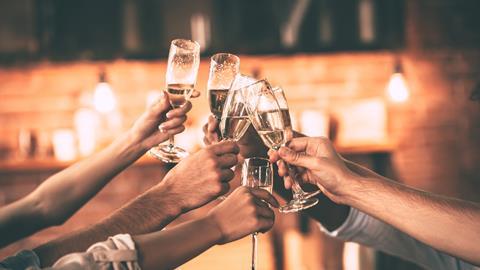Law firms should be changing their approach to booze and business development after the recent high-profile disciplinary case involving alcohol and misconduct. It is a firm responsibility. Law firms have the chance to set the standards and from next month the SRA’s changing rules do stress that the firm is responsible.

The recent Solicitors Disciplinary Tribunal (SDT) decision to fine Freshfields Bruckhaus Deringer partner Ryan Beckwith for his conduct is one of more than 20 sexual harassment or assault cases the SDT will hear this year. The tribunal ruled Beckwith knew or ought to have known Person A was heavily intoxicated and/or her judgement and decision-making ability was impaired. It was also decided that he knew or ought to have known his conduct was inappropriate.
The event in question happened on a day that had involved a firm outing followed by further socialising, during which partners apparently bought staff and themselves many alcoholic drinks.
We are now just weeks away from the introduction of the SRA Standards and Regulations 2019 which place great focus on ethical decision making for both individual solicitors and law firms. This is a rebalancing away from a culture of compliance, towards ethical judgement. Law firms will need to set and maintain standards which ethically are appropriate. For law firms the judgement to be exercised will be more important than an individual prescriptive rule – not least as the prescriptive compliance rules are being washed away.
The challenge for law firms now is: Do they have a strategy to ensure any events involving alcohol achieve their firms team bonding aspirations or business development needs without risking the firm’s reputation?
Should your firm put on drinks events at all? If so, who is 'safe' to attend? I use the word safe deliberately recalling two secretaries drunkenly arguing with each other many years ago.
If drinking is part and parcel of the event what is the firm’s policy about how much and individual conduct?
Who is monitoring conduct at the event? How are they protecting the individuals present from unwanted attention?
The drinking culture under the recent SDT case spotlight is not just prevalent in law firms, nor exclusively in City law firms, it permeates our national culture and our business development approach across the sector. Squaring this circle with the new SRA Code of Conduct for Firms obligation is a challenge:
'1.2 You do not abuse your position by taking unfair advantage of clients or others.'
If someone on your law firm's watch takes advantage of a client or someone else the SRA will have, from 25 November 2019, an easier time in holding the firm responsible: in my view this is quite right. The firm invites the guests (including partners and staff); the firm picks up the bar bill and will have chosen the venue.
The law firm putting on the event must manage the event to protect its own reputation. In the 1990’s I was a DJ in nightclubs with my planning focusing on the reputation of my event as 'an amazing night' was central to its success. What does your law firm do to ensure each event is an 'amazing night' and passes without adverse incident?
The reputational damage to Freshfields was significant. It will be interesting to see how general counsel clients react to that reputational damage, but under the forthcoming regime the SRA should be taking action more easily against law firms. When you add in the burden of proof threshold moves from the criminal to the civil standard simultaneously on 25 November 2019 the importance of law firms setting and maintaining the standards starts to shine through the fog of the unpleasant allegations in any particular case.
It is becoming more serious for law firms though because the SRA in the same document set the following Standard:
'8.1 If you are a manager, you are responsible for compliance by your firm with this Code. This responsibility is joint and several if you share management responsibility with other managers of the firm.'
So the onus is firmly on managers of law firms to set the standards and saying 'well we leave that to HR or the management board' as I often hear will no longer cut it.
What should your firm be doing? As a minimum:
- Review your approach to events (internal and external);
- Set out in a policy the standards of acceptable behaviour;
- Ensure the firm puts on training – against those standards which need to be set and reinforced;
- Ensure someone is available at the event to manage the 'people risk' and that they are senior enough to say 'no more' or 'I think you need to leave' with the authority that the individual - partner or junior - will comply.
This is a firm responsibility. No if’s, no buts – it is the firms’ reputation and standing which is at stake. Law firms need to get their houses in order. The recent focus on individual behaviour will pass but the expectation that everyone should be treated fairly, without discrimination or harassment will not. The onus is firmly on law firms to offer leadership on these issues. Ethical leadership should be taking the lead to protect everyone present.
Paul Bennett is a partner a Bennett Briegal LLP , a law firm which offers legal advice, training and support to law firms. His book on the new SRA regime is available here
































9 Readers' comments